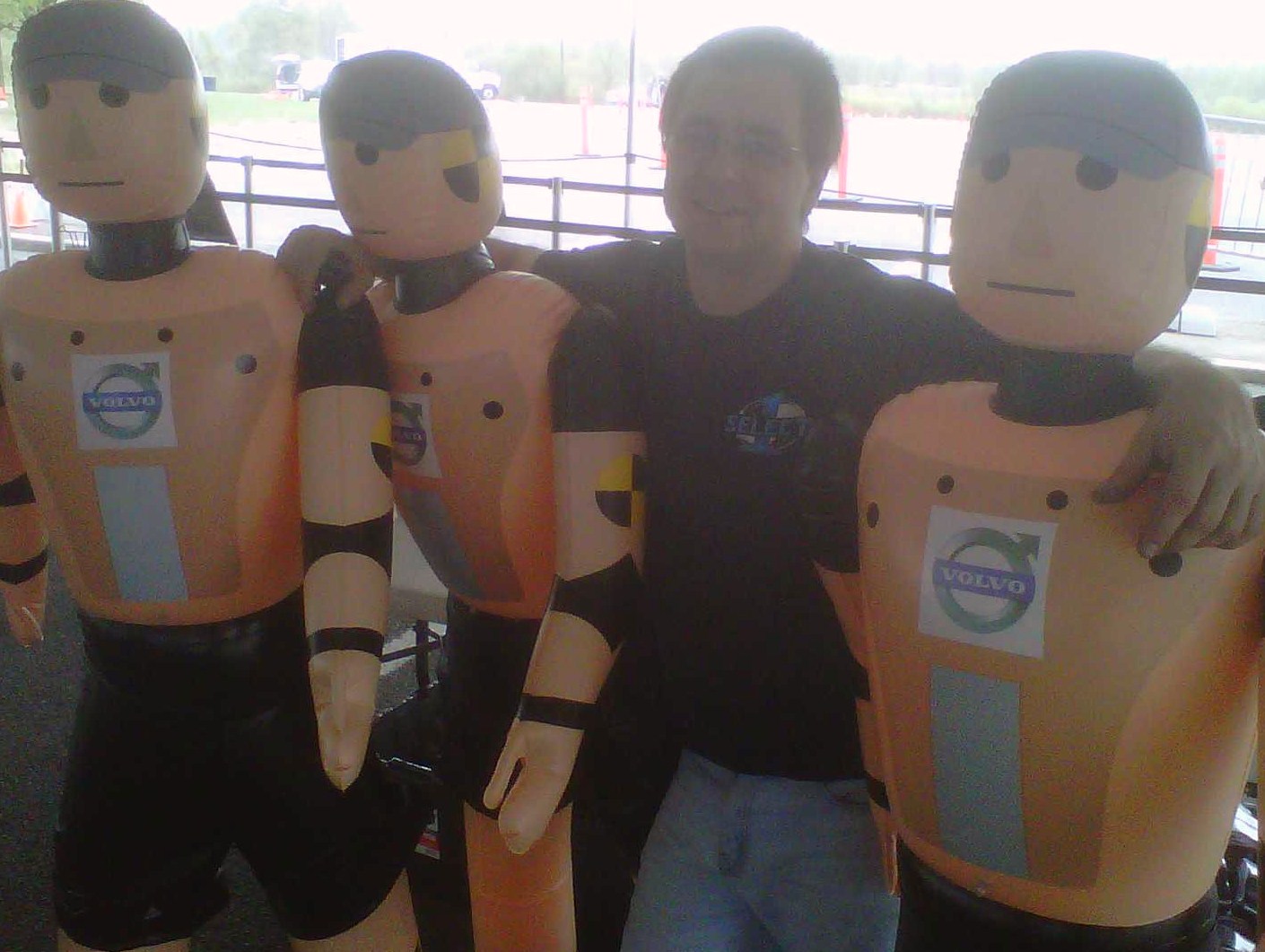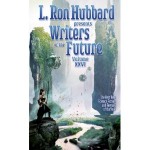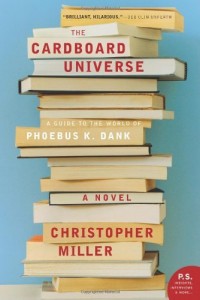written by Frank Dutkiewicz
The Stories
The protagonist in “Faith” by Mario Milosevic (debut 11/01/11) is answering to a committee about an alien visitor to his home. Alpha delivered a package with a virus that would eliminate the concept of religion in humanity. Opening the package is up to the protagonist but Alpha stays with him and his family. Like Pandora’s box, the package proves to be too alluring.
“Faith” asks the question what we would life be like without religion. The sudden absence of faith turns the protagonist into an instant cynical pragmatist. An interesting take, I confess. The author’s choice to narrate this from the protagonist’s recanting of events to a faceless committee is not what I would have chosen to do. It made him less likeable to me and made delightful idea less appealing.
“Over Tea” by T. M. Thomas (debut 11/02/11) is set in Colonial America. Two influential patrons from another time talk while the host, Deugaw, sips on tea. The host is aware the protagonist is attempting to profit with revolutionary inventions and is worried their timeline is in jeopardy. Deugaw poisons himself to see if he can effect events of the past and alter the future.
The two characters have inexplicably ended up in the past but decades apart. Deugaw has lived for decades in the past while the protagonist is a more recent time traveler. The story is a private conversation with Deugaw attempting to change the ambitious protagonist’s desire to get rich at the future’s expense. I found the piece compelling and the writing engaging. Wish there was more implications revealed (always do with alternate history pieces like this) but enjoyed it anyway.
“The Value of Folding Space” by Tim Patterson (debut 11/03/11) is a micro-tale of a man with the ability to teleport. The man contemplates his superpower but marvels on what it can’t do for him.
This read like the opening to novel. My only complaint is it was too brief. I was left unfulfilled.
“Dragon Dreams on Cardboard Wings and Tiny Scraps of Yellow” by Christopher Kastensmidt (debut 11/04/11) is a tale of a bored office worker named Susan. Susan cuts a star out of a sticky note and pastes it to her cubicle wall. With a wave of her arm the little cardboard montages around the star come to life on the blue fabric of her cubicle wall.
Unlike the ostentatious title, “Dragon Dreams” is a brief Beyond the Looking Glass type of tale. The author’s tendency to dress up his prose left me a bit annoyed. Other than that I have no issues with this wool-gathering-come-to-life story.
“The Essence of Truth” by Erin M. Hartshorn (debut 11/05/11 and reviewed by Louis Dogget) is an interesting tale, one I found very entertaining. He brings out the emotions in the story in a good way. The whole story is well written; his descriptions of the world he invented and his main characters are all well done. His bad guy is a bit cliche-ish but most are in this type of story. The story isn’t about the bad guy anyway.
The story is about a woman, Sarna, who finds a child who has an unique gift, one that puts the girl in danger with a greedy Prince who wants to be more than he is. Sarna also learns of a plot that would make the Prince more powerful to everyone’s woe. She has to place herself in danger to try to both help the girl and to stop The Prince.
Fantastical interruptus.
We’ve all seen them, read them, probably even liked them, but now we have an epic fantasy on the verge of a humble beginning and that comes to an abrupt halt.
In “The Closer” by Ari B Goelman (debut 11/08/11 and reviewed by Dustin Adams), we have a man at the end of one life, prime for the beginning of another, when a stranger enters his house. Understandably nervous but also with the proper mix of fear and resolution from someone suffering a recent loss, Martin searches his house for the noises he hears until he meets a man calling himself an engineer.
To say more, would give away too much.
This short story was rich with details and didn’t rush to say what it needed to say. I felt Martin’s fear as anyone would who had an intruder in his house. Then I sat back and smiled at the unique turn of events that unfolded after the introduction of the engineer.
All in all, a great short story.
“Chaos Theory” by Shannon Luke Ryan (debut on Tuesday 9th November 2010 and reviewed by Anonymous) is a short story based on the ‘butterfly effect’, a theory extrapolated from chaos theory (hence the title) and first used by Ray Bradbury in literature in a 1952 short story called ‘Sound of Thunder’.
I don’t think this short-short is trying to be anything it isn’t–it’s just a bit of fun. It begins with two butterflies emerging from their chrysalises; one flaps its wing and causes a cyclone that devastates the coast of Australia. Needless to say the other butterfly is determined not to be outdone, but finds it isn’t as easy to cause disasters as it first thought.
It was a shame that the author stated it was cocoon each butterfly came out of, when it should be a chrysalis. A little web research helps eliminate small errors. That said, it was enjoyable; I decided to ignore the butterflies’ ability to instantly know the meta-effects of their wing flapping.
Perhaps they had CNN?
“Winning Streak” by Nicky Drayden (debut 11/10/11) is tale of a shape-shifter scamming a casino. The casino is the only one that will allow an Ittari like Traleel Az on its floor. Ittari can’t miss on a machine. After 13 consecutive jackpots, the pit boss is forced to make a deal with Traleel.
“Winning Streak” is a fun story. The author throws in a couple of funny lines as we follow along with a character that we all know is cheating. The ending did feel like a cheat in itself but it worked.
Terrance Smith never got to say a proper goodbye to his departed wife in “One Year Later” by KJ Kabza (debut 11/11/11). 12 months later, he gets to talk to his wife for the last time.
“One Year Later” is a heartwarming tale. Thanks to advancements in computer technology and brain scanning, they are able to recreate your lost love one on the phone. It is meant to provide closure for the grieving. The author excellent writing made this delightful something special. Recommended
“Outside the Box” by Brian Winfrey (debut 11/12/11) is the story of a man saddled with a magical box. The box chooses its owner. The holder of the box must give what it presents to whomever happens to be standing on a particular Hollywood star at 11:00 AM. The protagonist is compelled to fulfill this task everyday. It is ruining the holder’s life, as it has the previous owner, and has driven away the protagonist’s girl. Each item the box produces is meant to change to the person’s life it is gifted to. The protagonist wishes his life would change but that would mean abandoning the box. If only it had an item he needed, but what could it possibly have that will equal the price of freedom he desires?
This was one neat idea. However, the wonderful idea was twice too long. At one point I was begging the story to get on with it. Nevertheless the authors smooth writing and nice ending made this one worth the read.
“Cruel Mountain” by T D Carroll (debut 11/15/11 and reviewed by Dustin Adams) begins and stays in an isolated restaurant on the side of a mountain during a wicked winter storm. A stranger blows in becoming the only customer and the kindly, or not-too-kindly, matron orders her young cook to give the man what he ordered, not what he needs.
There seems to be more going on between the woman and the old stranger, and while I was waiting for a revelation, the story ended, its secrets withheld. Who was the stranger? How did he pay? Did the boy get straightened out? Why should he have a real bowl of soup instead of broth?
I was disappointed in the lack of follow-through and vague revelations of what felt to me like the author knew the deeper meanings to, but the reader was left to guess.
The descriptions and analogies were slightly over the top, however they did provide vivid details of a storm and a cold, snowy location.
Unfortunately, I can’t recommend this story based on that alone.
“Supply and Demand” by William Meikle (debut on November 16th 2010 and reviewed by Anonymous)
I wanted to like this story, but in the end I was a little disappointed. It centres around a psychiatrist seeing a patient referred by the ER. The patient has delusional beliefs that there are significant numbers of soulless people in the world today, hence all of the modern world’s problems. The story’s focus is the conversation between the psychiatrist and the patient. I think if you are going to adopt this approach you need to carefully structure the conversation in order to create some subtle tensions and reveals or you simply end up with one person telling the other person something. I saw that there was an attempt to structure in this way but it didn’t really work for me–it’s a short-short and ended up being too simplistic. You are left to doubt whether the man’s delusions are in fact delusions.
This story would work better if longer, but it is a format that has been done before. I have written my own psychiatrist/patient conversation story with a ‘is it true’ question running through it and have seen others, so I wouldn’t necessarily recommend doing that.
Psychiatrists hear stranger and more cogent delusions than this on a daily basis, so the average psych would not begin to doubt his own version of reality based on the report of a single patient. There was a Googleable error; Thorazine is no longer manufactured or used and has been superseded by far more effective anti-psychotic drugs. The interview and the psychiatrist’s reactions (crying patient and panic button) and dialogue (‘Prove it!’) doesn’t reflect that of a professional conducting a mental health assessment.
In “Hypotheticals” by “D.K. Latta” (debut 11/17/11) the protagonist introduces a series of hypothetical scenarios to Edward involving an astronaut on an alien planet. The game seems innocent but its one Edward wants to win.
“Hypotheticals” is one of those stories you wonder what is going on. The ending had a very nice twist. The author did a nice job pulling it off, and I better leave it at that.
“What Lies Between the Bread” by Greg van Eekhout (debut 11/18/11) is about a sandwich shop. Jessica spots a sandwich shop on a street where the shops change daily. She is used to the weird and odd for the place set between the tavern and stationery store, but this shop seems so out of place it maybe the weirdest of all.
This story is almost uneventful. The idea of a changing shop for a single address is a neat idea. The shop owners explanation on why his store ‘belonged’ on that street. The story tipped to unlikable with an ending that didn’t whet my appetite.
In “The Piper” by Mai L Lee (debut 11/19/11 and reviewed by Dustin Adams) Rowan alone sees the illusory, phantom ship at dusk, as well as the boy on the periphery of her vision. The other children are jealous, which makes her feel all the more special. The boy, it seems, has chosen her. And yet her parents seem to know there’s trouble afoot. The mother withers while the father rages, but nothing deters the girl who longs for more than her decaying city can give her. The boy flits and hints at Rowan, teasing her with the music from his flute, calling her forth, drawing her in. She knows she shouldn’t seek him, yet she can’t help herself.
To divulge the details of their meeting would be to ruin the climax. To say I was disappointed, I hope, does not. It could be because I was expecting the story to lead me down one path, only to have it travel another. This alone is not a bad thing, but when I find myself anticipating, or worse, wishing for a story to proceed a certain way I attribute it to a dearth of a gripping plot. This is not to say the writing is poor. Quite the contrary. The writing was rich and the images vivid. It was simply that the story seemed to have an end point in mind, a twist if you will, and I personally felt let down by where it ended considering the lofty goals I had set for it while reading along.
“Some Day My Prince Will Go” by Shelia Crosby (debut 11/22/11) starts as a familiar fairy tale. The protagonist is imprisoned in a tower by a witch and is waiting to be rescued by a handsome prince, and has been waiting for a very long time. So long her standards for handsome princes have lowered. Jeffery is the latest to arrive to her rescue. He is pudgy, dim, out of shape, and she could care less. Unfortunately, it’s not her standards Jeffery needs to meet.
Shelia Crosby knows how to find my funny bone. “Some Day” is a smartly written work of humor. The protagonist is a sharp-witted, desperate-for-a-man, my type of girl. I found her clever and her perspective in this fractured fairy tale delightful. The first two-thirds of the story is wonderful, funny, and sharply written. Too bad the last part dragged, written as an attachment the author must have found necessary to tie things up. Still a great piece.
“Dear Ms. Moon” by Liz Argail (debut 11/23/11) is a series of letters sent to Earth’s satellite. Theresa Shackleton has a little brother who likes to dress up as Wonder Woman and jump off the roof in an attempt to fly. Theresa is worried he will do more damage than the broken limbs he has been acquiring. She asks the heavenly body to exert an extra gravitational pull so her poor brother doesn’t land so hard next time.
Some humorous stories are too silly to be funny to me. Liz Argail walks the fine line of between silliness and laughs. This delightful piece made me smile at the end. Cleverly done.
“A Day Like No Other” by S.C. Wade (debut 24th November 2010 and reviewed by Anonymous) is a story about a man in his latter years who is blessed/cursed with the ability to see people’s futures. He has kept this secret his whole life, apart from telling his understanding wife and now-estranged daughter. His wife has subsequently died and his relationship with his daughter is apparently damaged beyond repair. He has foreseen his own death and the story focuses on the brief few moments in a cafÃ�’ �, just before his fatal car accident, as he contemplates his past (i.e. the set up).
There is a lot to like in this story. It is written nicely and the pacing is good with some nice sensory details.
The small twist at the end, although delivered nicely, was a little predictable; it does seem to lack an internal logic, though. Given the fact narrator told his close family about his prescient powers, one would imagine that it then becomes a subject that can be discussed freely within the family…especially if they are reasonable people, and they are presented as such in the story.
“Lottery” by Nathan Wellman (debut November 25th, 2010 and reviewed by Ismail Rodriguez) is about a lucky family; winners of a lottery that will take them away from an apocalyptic earth by space shuttle to a new planet and a new life of plenty. They were getting out ‘scot free’. How their friends envied them. But not all is as it seems. There is a previously undisclosed sacrifice required before being allowed on board. But what can they do? It’s their only chance to escape.
There is so much information packed in so little space in this work of speculative fiction. The setting is quickly formed as you share the good fortune of Robert, Mary, and their daughter Dinah. This story is easy to follow and flows well. The characters were a bit shallowly drawn but what can you do in under 400 words. It was an interesting premise but left me wanting more.
Brian is the Intermediary of your subconscious at the New Sander Institute in “Flashback” by Melissa Mead (debut 11/26/11). He is an artificial being that is supposed to be void of feelings or independent thought. Years of being subjected to others dreams, nightmares, and memories has resulted in an unforeseen circumstance for him, Brian has developed a personality.
Brian is a tortured person. He is treated like a tool in the institute, and like a tool, is often abused. His development has troubled Dr. Sanders. Brian refers to the doctor’s past colleagues as relatives. Seeking to correct the anomaly, the doctor enters his virtual reality world and plunges him into the memories he was never supposed to have retained.
My biggest problem with this piece was I was never sure what Brian was. In one part he is a solid person, the next another like him was erased as if it was a holographic image. It was never made clear. The ending didn’t help either on his state. The ending left as many questions as well. The biggest was how?
Hard to like a story when you’re not even sure what the main character is. This story started out about a dream institute but I never saw a patient. Strong writing but I disliked more than I liked about this story.
“Questions” by Jacob A. Boyd (debut 11/29/11) opens in a white room with two important doors in it. The protagonist has no memory of who he was but a man is there to answer his every question. The man counts as he answers each one. The amount of questions asked, rather than the answers, contributes to which door the protagonist chooses.
I expected to hate this story when I first started reading the opening. White rooms usually turn editors away; thankfully the DSF editors stuck with it. The protagonist’s blank memories slowly resurface as his questions are answered but as vague feelings rather than solid events in his mind. The doors lead to different directions. One he’ll wade in the memories in his life and the other he’ll linger between places, still void of his memory.
At about a thousand words, “Questions” shows why short works of fiction can be so gratifying to read. It took me a hundred words for me to become completely engrossed in it. I read this story four times, not because I couldn’t grasp its meaning, but because I had to experience its effect again. The ending to this one is can’t miss. Recommended
In “Appalled Science” by “Andrew Kaye” (debut 11/30/11 and reviewed by James Hanzelka), Dr Abram Winthrop. like most of us, wants a friend and a companion. Unlike most of us he is a scientist and can make his own. What Abram finds, however, is even created friends aren’t perfect.
I liked this story’s inventiveness and brief window into Abram’s world and desires. It is difficult to create any type of character development into short stories like this. But the author is still able to make understand Abram’s motivations. The ending was a nice little twist made to make us think about our actions.
Analysis
Last month’s review started a bit of controversy. I am delighted Daily Science Fiction received extra attention because of it. They deserve it. Here’s hoping the editors and magazine get recognition in the form of nominations and awards. As one who has read and reviewed an issue of almost every major publication, I can say after reading the first three months, they consistently produce the strongest material in the market today.
The leading reviewer in the industry said it was the short length of most of the stories as the main reason why DSF was over looked. Although the editors of DSF cite economics as a reason why they seek flash length in their submissions page, they have proven a story doesn’t need to be long to be great.
Although I didn’t recommended it, “Some Day My Prince Will Go” by Shelia Crosby is my pick for the funniest so far in DSF (and I didn’t pick it because we shared a spot in a humor anthology together).
“Questions” by Jacob A. Boyd is my new favorite for the magazine. If you’re looking for a story to nominate for the Million Writers Award, give this one a look.
 In the photo from left to right, is Louis Doggett, Dustin Adams, Frank Dutkiewicz, and Ismail Rodriguez. Not shown, James Hanzelka (he took the picture) and Anonymous (too shy).
In the photo from left to right, is Louis Doggett, Dustin Adams, Frank Dutkiewicz, and Ismail Rodriguez. Not shown, James Hanzelka (he took the picture) and Anonymous (too shy).
Louis Doggett’s exploits can be tracked here.
Dustin Adams has a blog which can be found here.
Frank Dutkiewicz has recently published a short story in the latest issue of On The Premises.
Anonymous is an accomplished author. He is credited with writing such classics as The Book of Dead, Beowulf, The Key of Solomon, The Autobiography of a Flea, and Go Ask Alice to name a few. He is also known for writing many works of poetry, inspirational phrases, and several Psalms in the Bible.






